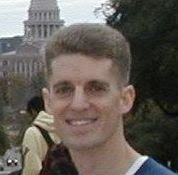
A photo taken in a taxi: No Money, No Friends
Togo is a country that was dealt a good hand, but quickly had its hand taken, reshuffled, and re-dealt with a lot of the deck missing. If you are not completely familiar with the history of Togo I will highlight the pieces that illustrate my point.
Togo has the only deep water port in West Africa, and previously had the greatest tourist trade (as well as slave trade, but that is for another time) and abundant natural resources as well. With these cards to play it was obvious that Togo would quickly become developed and powerful in the region. All of that changed, then changed again as time went on.
Colonized by the Germans, then re-colonized by the British and French after the war, the boundaries of Togo were redrawn leaving the great majority of its natural resources in what is now Ghana. Declaring independence soon after, Togo’s democracy was overthrown almost immediately in a military coup that after many years left Togo with humanitarian issues that all but ended tourism here. Left with almost no resources and lacking an influx of capital from outside the country Togo found itself undeveloped with little hope of change.
The people here have never stopped living. Even though the outlook of the country has taken turns for the worse, the people here are still industrious and always looking for a way to make ends meet. A lesser people would have given up, but it has made the Togolese strong and resilient.
The core of The Peace Corps mission here is to help people improve their position at a grassroots level placing them in a sustainable and developed state. This is achieved through skills training and education about health and management. The people here are eager to learn, and often believe that with this effort they can change their lives. By helping individuals here, the country itself grows as well. There is no robust solution available at a high level. Infrastructure must be put into place before sweeping changes can be made, so by working with the people themselves Togo becomes prepared for the changes when they happen.
“Life happens every day in Africa.” I say it often and it always holds true. Each day the people here face life-threatening challenges with optimism and strength. Car accidents, Malaria, HIV, and many water-borne diseases are always looming, but the people here continue to live each day without fear. Each community is rocked by changes on a weekly basis, but the people continue pressing forward. I had heard that Togo is the sixth poorest nation on Earth. I have no idea if that is true, but I do know that if you judge a nation by the ethic of its people instead of its GDP, Togo is nowhere near the bottom.
100 Days away from The United States, easily the greatest country on Earth in every sense of the word, and I have learned a lot about how other people live. I have seen that in the absence of riches, the character of the people and the communities they create become the riches in great abundance. The only thing lacking in the US is this pervasive strength of character that can be found in every corner of Togo. I believe this character is not missing from the US, but simply hiding in a haze of consumerism and cheap distractions. My hope that it becomes prevalent again the way it has been in the past, and with that strength we can once again enhance not only our lives as US citizens, but the lives of those around us in places like tiny Togo.

